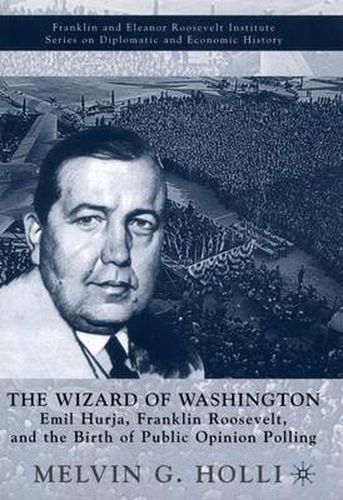Readings Newsletter
Become a Readings Member to make your shopping experience even easier.
Sign in or sign up for free!
You’re not far away from qualifying for FREE standard shipping within Australia
You’ve qualified for FREE standard shipping within Australia
The cart is loading…






This title is printed to order. This book may have been self-published. If so, we cannot guarantee the quality of the content. In the main most books will have gone through the editing process however some may not. We therefore suggest that you be aware of this before ordering this book. If in doubt check either the author or publisher’s details as we are unable to accept any returns unless they are faulty. Please contact us if you have any questions.
Historians have tended to point to John F. Kennedy’s 1960 bid for the presidency as the first time a candidate relied extensively on public opinion polls to drive a campaign. Polling has come to define American politics and is perhaps most clearly embodied in Bill Clinton, the post poll-driven president in history. Melvin G. Holli dismisses this notion, however, and reveals that presidential reliance on public opinion polls dates back to the New Deal era, when Franklin Roosevelt employed a first-generation Finnish American named Emil Hurja to conduct polls for his 1932 and 1936 presidential campaigns. Holli shows us how Hurja convinced the Democratic National Committee to allow him to apply the new science of polling to FDR’s presidential campaign of 1932. Roosevelt’s triumph at the polls in that year and again in 1936, as well as the spectacular 1934 Democratic mid-term congressional victory was legendary. Holli here restores Hurja, whom the Washington press corps dubbed the Wizard of Washington , to a place in American history and politics.
$9.00 standard shipping within Australia
FREE standard shipping within Australia for orders over $100.00
Express & International shipping calculated at checkout
This title is printed to order. This book may have been self-published. If so, we cannot guarantee the quality of the content. In the main most books will have gone through the editing process however some may not. We therefore suggest that you be aware of this before ordering this book. If in doubt check either the author or publisher’s details as we are unable to accept any returns unless they are faulty. Please contact us if you have any questions.
Historians have tended to point to John F. Kennedy’s 1960 bid for the presidency as the first time a candidate relied extensively on public opinion polls to drive a campaign. Polling has come to define American politics and is perhaps most clearly embodied in Bill Clinton, the post poll-driven president in history. Melvin G. Holli dismisses this notion, however, and reveals that presidential reliance on public opinion polls dates back to the New Deal era, when Franklin Roosevelt employed a first-generation Finnish American named Emil Hurja to conduct polls for his 1932 and 1936 presidential campaigns. Holli shows us how Hurja convinced the Democratic National Committee to allow him to apply the new science of polling to FDR’s presidential campaign of 1932. Roosevelt’s triumph at the polls in that year and again in 1936, as well as the spectacular 1934 Democratic mid-term congressional victory was legendary. Holli here restores Hurja, whom the Washington press corps dubbed the Wizard of Washington , to a place in American history and politics.